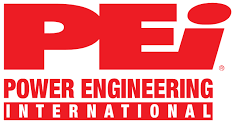Toyota’s fuel cells technology is to form the basis for a power generation research programme as the DOE seeks to advance the development of clean hydrogen.
The auto manufacturer’s North American division is collaborating with the DOE’s National Renewable Energy Laboratory (NREL) to build, install and evaluate a 1MW proton exchange membrane (PEM) fuel cell power generation system at NREL’s Flatirons Campus in Arvada, Colorado.
The 1MW fuel cells system integrates multiple Toyota fuel cell modules into a larger system to provide responsive stationary power.
In an earlier project, NREL demonstrated the use of an automotive fuel cell system from Daimler to provide power for a data centre. This new system is at a significantly larger scale, 1MW compared with the 70kW Daimler fuel cell, generating almost 15 times more power and capable of direct current and alternating current output.
Have you read?
Horizon Europe: Five hot hydrogen projects
European Commission green lights €5.4bn hydrogen project
Toyota is working with systems integrator, Telios, for the design, balance-of-plant and build of the system for delivery to NREL.
Toyota has developed an integrated control system to manage operation of the fuel cell modules to maximise efficiency and system life. The system demonstrates a simplified design as a drop-in replacement to a conventional generator.
“Achieving carbon neutrality requires all of us to explore new applications of zero-emission technology, including how that technology will integrate with other systems, which the project with NREL will identify,” said Christopher Yang, group vice president, Business Development, Fuel Cell Solutions, Toyota.
“The application of our modules in deployments of this magnitude shows the scalability of Toyota’s fuel cell technology, whether it is a single fuel cell module for one passenger vehicle or multiple systems combined to power heavy-duty equipment.”
In the 3-year, $6.5 million collaboration, NREL researchers intend to investigate the operational boundaries of the fuel cell system design, identifying performance limitations and degradation over time.
Such real-world data should aid with the development of future applications.
Research and development will also include assessing how the system performs when integrated with energy storage and renewable energy generation systems, such as solar photovoltaic and wind.
The fuel cell generator is part of a megawatt-scale hydrogen research system being designed and commissioned at NREL’s Flatirons Campus. The system, which includes a 1.25MW PEM electrolyser, 600kg hydrogen storage system and 1MW fuel cell generator, is intended to provide a platform to demonstrate direct renewable hydrogen production, energy storage, power production and grid integration at the megawatt scale.
The fuel cell generator system will be installed this summer, and the full system will be commissioned later in 2022.










